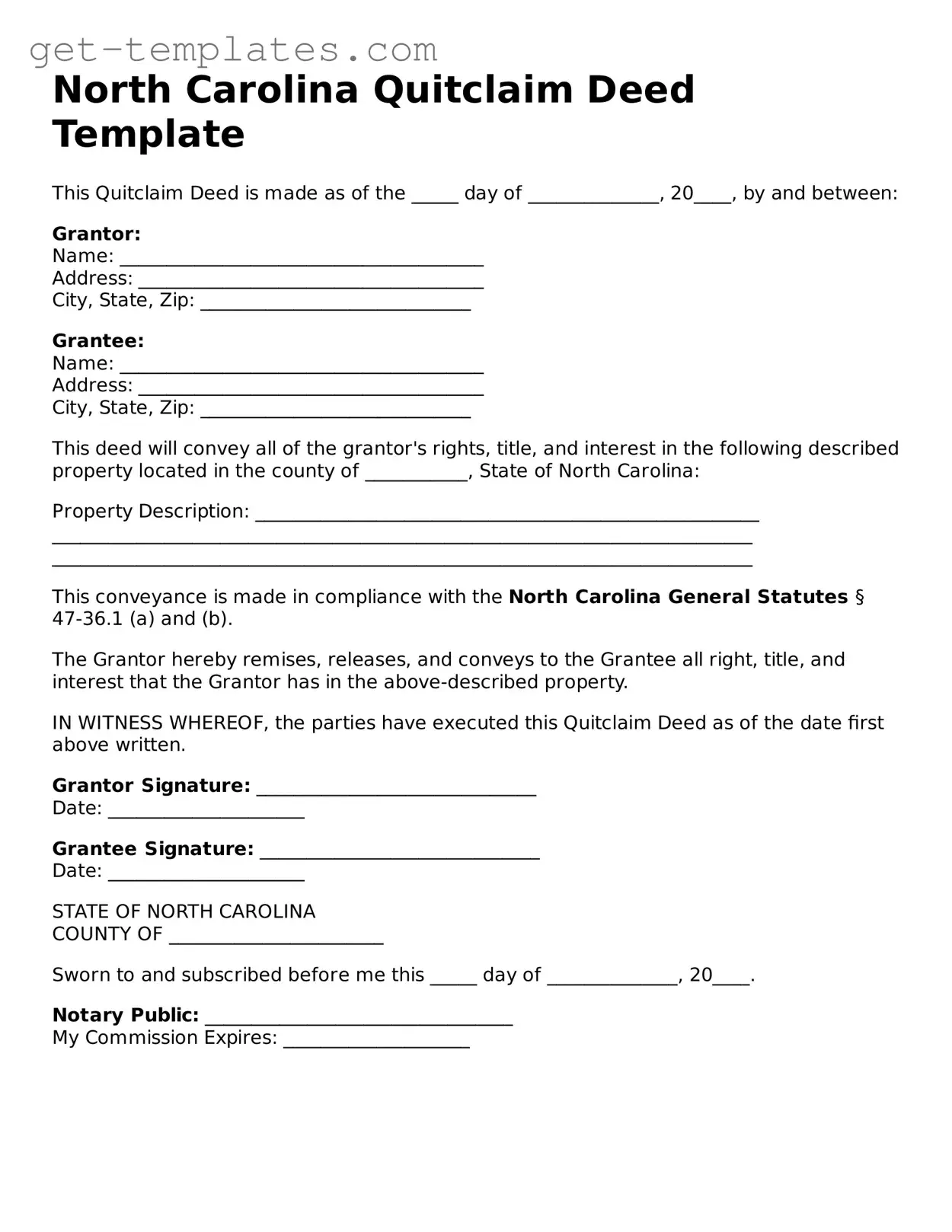Attorney-Approved Quitclaim Deed Document for North Carolina
A Quitclaim Deed is a legal document used to transfer ownership of real estate from one party to another without any warranties or guarantees about the property’s title. In North Carolina, this form is particularly useful when the transfer occurs between family members or in situations where the seller does not want to assume liability for any potential claims against the property. Understanding how to properly utilize this form can simplify the process of property transfer while ensuring that all parties are informed of their rights and responsibilities.
Get Document Online

Attorney-Approved Quitclaim Deed Document for North Carolina
Get Document Online
You’re halfway through — finish the form
Finish Quitclaim Deed online — edit, save, download made easy.
Get Document Online
or
⇓ PDF Form
